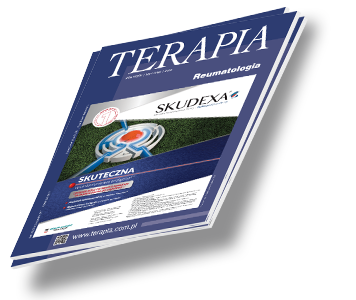W gabinecie lekarza rodzinnego Terapia 2019, 3 ( 374 ) : 60 - 68
Aktualne standardy leczenia nadciśnienia tętniczego w gabinecie lekarza rodzinnego
Management of arterial hypertension based on current ESC/ESH 2018 guidelines, in the light of the most common therapeutic problems of the primary care physician’s practice
Nadciśnienie tętnicze (NT) jest najczęstszą chorobą w skali całego świata, a według WHO (World Health Organization, Światowa Organizacja Zdrowia) stanowi również główną przyczynę zgonów. Nadciśnienie tętnicze należy do najważniejszych czynników ryzyka chorób serca i naczyń, a nieleczone bądź leczone nieskutecznie jest przyczyną wielu groźnych powikłań, m.in. udaru mózgu, zawału serca, nagłego zgonu sercowego, niewydolności serca, chorób naczyń obwodowych, migotania przedsionków, niewydolności nerek, upośledzenia funkcji poznawczych i otępienia.

Zaloguj się i przeczytaj bezpłatnie całą treść artykułu.
Nie masz jeszcze konta dostępowego?
Zarejestruj się bezpłatnie, a otrzymasz:
* dostęp do wszystkich doniesień oraz pełnych tekstów artykułów naukowych w naszej Czytelni,
* prawo do bezpłatnego otrzymywania newslettera "Aktualności TERAPIA" z przeglądem interesujących i przydatnych wiadomości ze świata medycyny oraz systemu ochrony zdrowia w Polsce i na świecie,
* możliwość komentowania bieżących wydarzeń oraz udziału w ciekawych quizach i konkursach.
Zapraszamy serdecznie, dołącz do naszej społeczności.



Dodaj komentarz